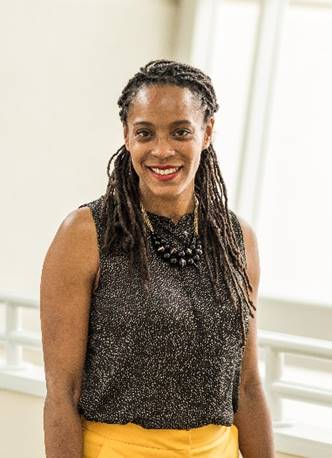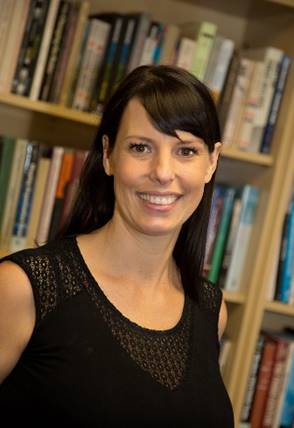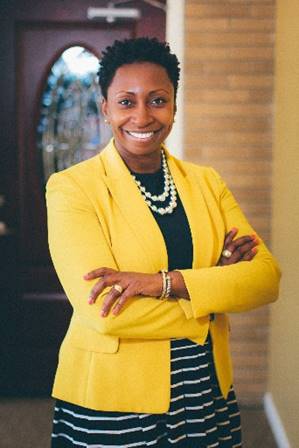EDA Center for Regional Economic Innovation Update
By Jennifer Bruen, Project Coordinator, Center for Community and Economic Development
Since 2011 the MSU EDA University Center for Regional Economic Innovation’s (REI) primary focus has been on community engagement, strategic partnerships, and collaborative learning to support the creation and identification of regionally innovative community and economic development tools, models, policies, and practices to improve access to capital; create small businesses; increase job skills; improve infrastructure; increase global competitiveness; and strengthen underserved communities and excluded citizens.
Keeping in mind the most economically vulnerable communities, REI has built an amazing network that continues to use a crowdsourcing method to identify critical areas of importance in disadvantaged communities and regions. For the past seven years the REI Network, an extensive digital reach of over 1,000 public and private sector organizations and individuals subscribing to REI’s newsletters and communications, has continued to successfully engage economic development districts, higher education institutions, local public and private leaders, workforce development boards, nonprofits, state agencies, commercial lenders, tribes, and others concerned with sustainable economic growth and equity in Michigan.
During the winter of 2017-2018 REI staff solicited for Co-Learning Plan (CLP) authors, Student-Led, Faculty-Guided (SLFG) project teams, and Innovation Fellows (IF). They received numerous promising applications. A total of 11 projects were selected for the 2018 series.
Student-Led, Faculty-Guided Projects
The SLFG projects will culminate in written reports due in May 2018, and may include a video and other forms of dissemination as appropriate, in June, July and August of this year. These projects should be exceptionally helpful to communities across the state. Stay tuned for the reports.
City of Durand Downtown Economic Development Enhancement Strategy
Student Team, Michigan State University, Led by Zenia Kotval, Ph.D.
Village of Sebewaing Sea Kayaking and Recreation Study
Student Team, Michigan State University, Led by Zenia Kotval, Ph.D.
Assessment of the Maker Economy in Detroit
Student Team, Wayne State University, Led by Robin Boyle, Ph.D.
Big-Box Converted to Co-op
Student Team, Alma College, Led by Edward C. Lorenz, Ph.D.
Co-Learning Plans
REI’s 2018 CLPs will be completed by commissioned Michigan scholars and practitioners on practical, applied research which should lead to innovative economic development strategies, tools, models, policies, and programs to address economic ecosystem gaps in Michigan. Five CLP projects were identified and selected in collaboration with EDDs (Economic Development District), the Consultative Panel, and other experts, based on the likelihood of generating new investments to create or retain jobs and businesses.
1. STAND OUT CLP: Agriculture Technological Innovation in Michigan
 Terri Barker, Michigan Department of Agriculture and Rural Development
Terri Barker, Michigan Department of Agriculture and Rural Development
Ms. Barker applied to work on a co-learning plan and asked for no REI financial support. We were impressed with her enthusiasm and passion to do this important work for the REI network without compensation. Ms. Barker’s CLP will be highlighted throughout this project year as our standout project for 2018. The Plan will help stakeholders operating in the food and agriculture technology sector throughout Michigan to identify statewide resources for economic developers, policymakers, and entrepreneurs. Barker is already working with several food and agricultural tech companies looking to grow in Michigan, and she has engaged MSU Tech Transfer Centers and MEDC Smartzone business accelerators to start identifying existing resources and tools. By leveraging existing Michigan Department of Agriculture and Rural Development networks and partnerships such as the Michigan Economic Development Association and venture capital and angel investor groups, Barker is collecting existing food and agricultural tech resources quickly and effectively.
The report will include a brief analysis of existing and potential tools as well as models to grow the food and agriculture technology sector in Michigan. Food and agricultural tech sector stakeholders and businesses will have the opportunity to provide feedback on the analysis prior to completion of the report.
2. Strengthening Michigan’s Infrastructure and Sustainability: Effective Implementation of Master Plans and Capital Improvement Plans
John Austin, Director, and Dayne Walling, Senior Policy Adviser, Michigan Economic Center
3. Creating a Fashion Entrepreneurship Community
Meleena Herring and Joe Carr, The Runway
4. A Study of the Economic Impact of Startup Accelerator Programs in Michigan
Tony Willis, Lansing Economic Area Partnership
5. Smart Cities and Transportation in Michigan
Dong Zhao, Ph.D., School of Planning, Design and Construction, Michigan State University
Innovation Fellows Projects
The Innovation Fellows (IF) Program was established in 2016 to attract and support top champions in communities and organizations to tackle the tough economic development issues that our distressed communities face every day. Implementing new economic development tools, models, and policies is a difficult process, and often a local champion is critical to advancing such innovation. Innovation Fellows are supported by REI to provide on-the-ground support and coordination to move concepts to actions. Innovation Fellows may consider past Co-Learning Projects to serve as current and practical information for local and state economic development practitioners and policymakers.
Network and Digital Media Strategies for Mobilization Toward Policy Change
 Laleah Fernandez, The Quello Center, Michigan State University
Laleah Fernandez, The Quello Center, Michigan State University
This project will focus on a digital media strategy for the Southwest Michigan Planning Commission to improve awareness, consensus building, and action, related to current topics of policy importance for economic development. In particular, this project will include a network analysis to help optimize the flow of information (e.g. remove redundancy), specify influencers/opinion leaders, and improve communication efficiency based on strength of ties and attributes among stakeholders. The project will result in a case study research paper and digital media outreach template for other regional economic development organizations.
Exploring the Underground Economy in Detroit
Rita Fields, Ph.D., Business College, Madonna University
 Economic development initiatives targeting entrepreneurs have found Detroit to be a ripe breeding ground for talent, and for those entrepreneurs who are able to participate in such programs this has been a time of great fortune. The reality, though, is that these programs are not open to all who desire to ascend to the entrepreneurial ranks. For a multitude of reasons that need to be further identified and explored, some aren’t able to take advantage of this opportunity. For some entrepreneurs, transitioning from being “off the books” (or, as referred to in the title, underground) to “on the books” would result in a significant pay cut due to the costs of conducting business. The research proposed in this study will focus on the definition of the underground economy, identification of susceptible participants, barriers of entry that have prevented participants of the underground economy from engaging in standardized entrepreneurial development, and an attempt to quantify the potential economic impact of the underground economy in the region and why a commitment to reconnect that effort to the overall impact benefits the region. It will also propose recommendations on how funders can be more inclusive in their funding guidelines.
Economic development initiatives targeting entrepreneurs have found Detroit to be a ripe breeding ground for talent, and for those entrepreneurs who are able to participate in such programs this has been a time of great fortune. The reality, though, is that these programs are not open to all who desire to ascend to the entrepreneurial ranks. For a multitude of reasons that need to be further identified and explored, some aren’t able to take advantage of this opportunity. For some entrepreneurs, transitioning from being “off the books” (or, as referred to in the title, underground) to “on the books” would result in a significant pay cut due to the costs of conducting business. The research proposed in this study will focus on the definition of the underground economy, identification of susceptible participants, barriers of entry that have prevented participants of the underground economy from engaging in standardized entrepreneurial development, and an attempt to quantify the potential economic impact of the underground economy in the region and why a commitment to reconnect that effort to the overall impact benefits the region. It will also propose recommendations on how funders can be more inclusive in their funding guidelines.

